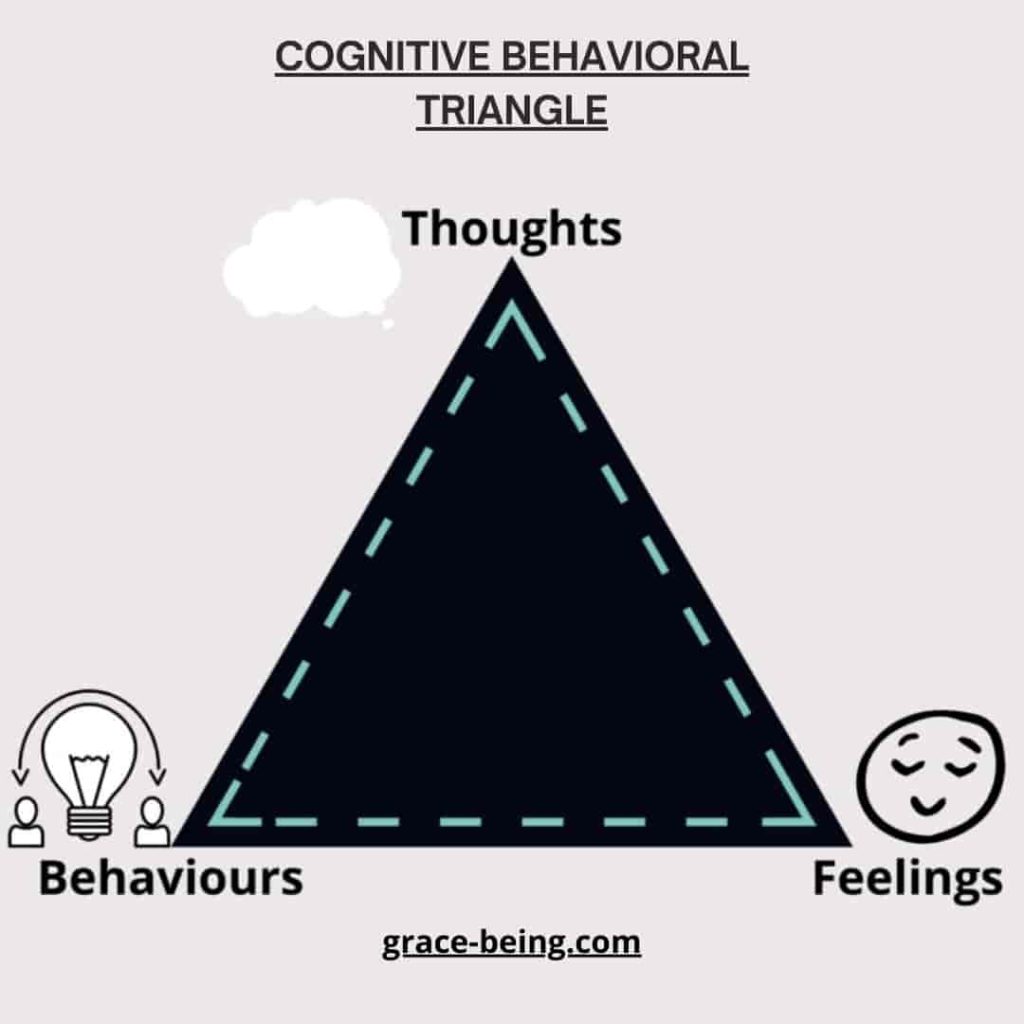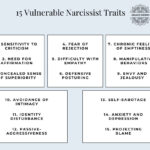How to Overcome Fear of Abandonment
People who struggle with fear of abandonment feel imprisoned by the overwhelming anxiety that torments them. By becoming more self-aware you can identify your negative thoughts and manage your overwhelming feeling of anxiety.
If you fear abandonment it’s easy to get stuck in toxic relationships which further damages your self-esteem and enhances your fear of abandonment. So what is fear of abandonment exactly? And where does it come from? Fear of abandonment most often comes from childhood trauma or distress.
Being physically or emotionally neglected can also lead to fear of abandonment and affect our attachment styles. These attachment styles define how we communicate in relationships later on in adulthood.
In this article you will learn how you can get over your fear of abandonment by working on your emotional health, and reframing your mind with affirmations for fear of abandonment.
Steps you can take to overcome fear of abandonment
1. Enhancing self-awareness
Enhancing your self-awareness is the first step towards healing and overcoming fear of abandonment. Reflect on how you feel about yourself, what kind of thoughts you have, and how you speak to yourself. The way you speak to yourself reflects your self-esteem and sense of self-worth.
Thoughts influence how we feel about ourselves, and our feelings drive our actions and behaviors. Learn more about why working on your emotional intelligence is so important and how it can help you overcome fear of abandonment.

2. Self-acceptance
Accepting yourself with all your positive qualities and imperfections is essential to overcoming fear of abandonment. Self-acceptance is a deep form of self-love. What does it mean to really love yourself? Loving yourself unconditionally means that you accept what you are thinking and feeling.
Validating your feelings is very important as during childhood you might have been taught that your feelings do not matter. The more you resist and repress what you are feeling, the harder it will be to manage your emotions, and you end up fueling them instead of working with them.
“What you resist not only persists, but will grow in size.’’
Carl Jung
When we feel pain, unpleasant feelings, our instinct is to resist them, but accepting them will make it easier to release and overcome them. Releasing negative thoughts and beliefs about yourself will help you deal with your fear of abandonment and increase your sense of worth.
3. Practice mindfulness and meditation
Mindfulness teaches you to become aware of what’s going on within you and in the present moment. This will help you become less impulsive and therefore less carried away with your anxiety and overwhelming emotions. Reframing your mind by doing Mindful Cognitive Behavioral Therapy (M-CBT) helps you rewire your brain by changing anxious negative thoughts to more positive and realistic ones.
Practicing meditation also helps you become more mindful as you train your mind to be more focused and present. Focusing on the present moment will decrease your anxiety as you stop dwelling on the past or worry about what might happen in the future. Reflect on what you’re feeling in the moment and ask yourself why you’re feeling that way. This can help you understand your emotions better and understand where your fear of abandonment is coming from. Learn more about how you can use meditation to deal with anxiety and negative thoughts.
4. Inner child healing
Generally, fear of abandonment comes from childhood trauma or neglect. Even if your parents and caregivers provided you with love and affection, if at some point your emotional needs were neglected, it can manifest as fear of abandonment. Unconsciously you end up fearing the same scenario playing out again with other people. Growing up in an environment where your feelings were not validated sets you up to ignore and repress your own feelings through your adulthood.
By beginning to pay attention to your needs and your own feelings, you can begin to honor your deepest self; the self that was ignored as a child. Learning how to assert yourself and communicate your needs will embark you on the path of healing and overcoming your fear of abandonment.
Related: How To Break Codependency
5. Observe your triggers
Fear of abandonment drives people to act from a place of insecurity. For example you might get anxious when your partner doesn’t answer your call or text message, so you call and text multiple times and engage in suspicious thoughts.
Acting from a place of insecurity might drive your partner or friends away which ends up reaffirming your negative self-beliefs and worsens your fear of abandonment. If you fear abandonment you might have a tendency of being impulsive, needy, clingy and controlling.
To help yourself overcome fear of abandonment, try and catch yourself in the moment when you start feeling insecure. Instead of being impulsive and acting out on your emotions, take a deep breath and write your feelings down in your journal. This way you will train yourself to think and act consciously rather than impulsively and it might save you from a great deal of drama in your relationships!
6. Stay away from toxic relationships
Unfortunately, people who have fear of abandonment usually have codependency issues and people pleasing tendencies. These qualities make them a perfect match for abusive and narcissistic people. As a result of their fear, they end up putting up with things that make them unhappy and struggle with maintaining solid boundaries.
This kind of behavior is self-destructive and will further damage their self-esteem and fear of abandonment. Building and maintaining true loving relationships based on trust is essential to heal and overcome the fear of abandonment. Otherwise, if you find yourself being manipulated or taken advantage of by friends or romantic partners, you risk being stuck in a loop where you neglect your own needs to continue pleasing others.
7. Stop assuming and generalizing
You might unconsciously assume that everyone will treat you the same way, especially if you have been emotionally neglected in your childhood. Just because your parents did not validate your emotions and needs, doesn’t mean that everyone will do the same.
Learning how to communicate your emotions and needs will help your partner take care of them and fulfill them. Do not assume that your partner can read your mind, otherwise this will reaffirm how you felt when you were a child as your partner won’t learn about your needs if you don’t communicate them. Therefore generalizing is not a rational assumption to make.
Affirmations to overcome the fear of abandonment

The best thing you can do to heal yourself and overcome the fear of abandonment is to stay positive and work on your emotional health. Repeating positive affirmations is a good technique to help you overcome the fear of abandonment and maintain healthy secure relationships.
Take a look at the affirmations below and see which ones you feel that you need the most. You can use these affirmations in different ways:
- Say them to yourself when you need them to calm you down
- Read them before you start your day and before you go to sleep
- Set them as your intention before you meditate
Our brains learn by repetition with the process of neuroplasticity. So the same way you learned and incorporated self-negative beliefs and fears from past experiences, you can learn new positive beliefs and overcome your fear of abandonment.
“Unlearn what you have learned and set yourself free.’’
Grace Being
Positive affirmations to overcome fear of abandonment:
Healing and self-love affirmations
- I am enough and accept myself as I am
- My emotions and needs are just as important as anyone else’s
- I honor and validate my needs and emotions
- I love myself unconditionally
- I am a likable and lovable person
- I am worthy of love and affection
- Attending to my needs is an act of self-love
- I deserve to be cared for and respected
- My voice and opinion matter
- I easily communicate my needs and desire
- Being assertive is not rude
- I respect my boundaries
- I know how to take care of myself and fulfill my needs
Overcoming and letting go of fear of abandonment
- It’s okay to feel scared, but I overcome my fears
- I am confident, brave and resilient
- I take risks even when I feel fear
- I am confident in new situations
- I am good at talking to new people
- It’s okay not to be liked by everyone
- I think positively about myself no matter how others may feel
- Every day I become more confident and outgoing
- Making conversation is easy for me
- I allow myself to be exactly who I am
Coping and dealing with fear of abandonment
You can learn how to cope and deal with fear of abandonment by educating yourself and learning how to deal with the issue. Changing negative behavioral tendencies and learning new behavior strategies is key to overcome the fear of abandonment.
Seeking support from family, friends or a professional can help you let go of the fear of abandonment and learn new healthy habits. It’s common for people who struggle with fear of abandonment to feel disconnected and lack a sense of belonging. This is probably due to the fact that they never allowed their true self to come out and made themselves try to fit in.
The good news is that it’s never too late. Whatever your current stage of life, you can overcome the fear of abandonment by working on yourself so you can let go and release this fear. That way you can have a better relationship with yourself and others!
FAQ
To let go of fear of abandonment you have to work on self-love and self-acceptance. Loving yourself unconditionally will empower you to be true to yourself and communicate your needs and emotions. Being assertive is not selfish, but an act of self-love. By being authentic you can attract the right people into your life.
Mindset Coaching can help you overcome the fear of abandonment by becoming aware of your thoughts and feelings. Identifying your thoughts and feelings can help you manage your anxiety and change negative behavioral patterns. Mindful Cognitive Behavioral Therapy (M-CBT) is an effective technique to help you overcome the fear of abandonment.
Practicing mindfulness, meditation and repeating positive affirmations are effective techniques to help you cope and deal with fear of abandonment. By reframing your negative beliefs and thoughts to positive ones, you can rewire your brain to a positive mindset. This way you can manage your anxiety provoking thoughts and become less impulsive







